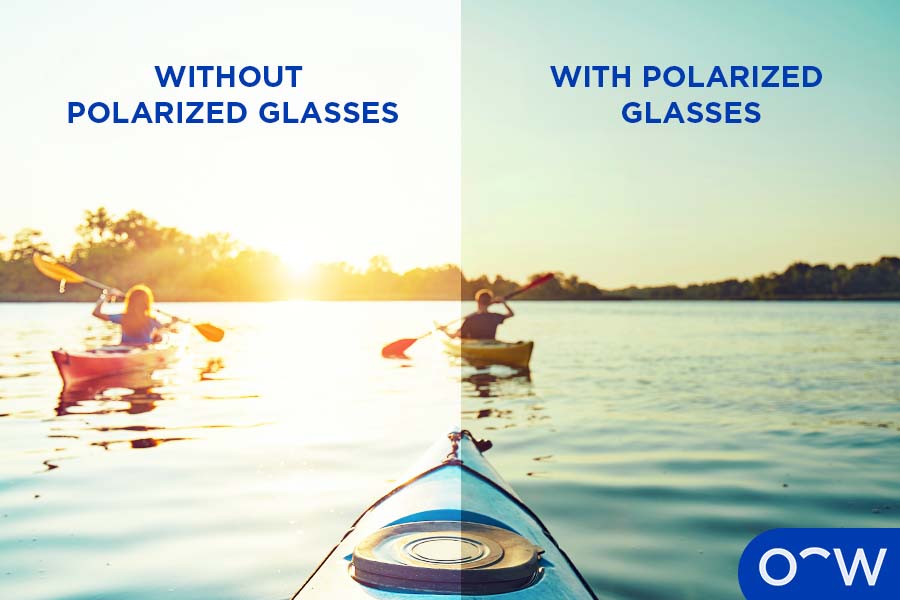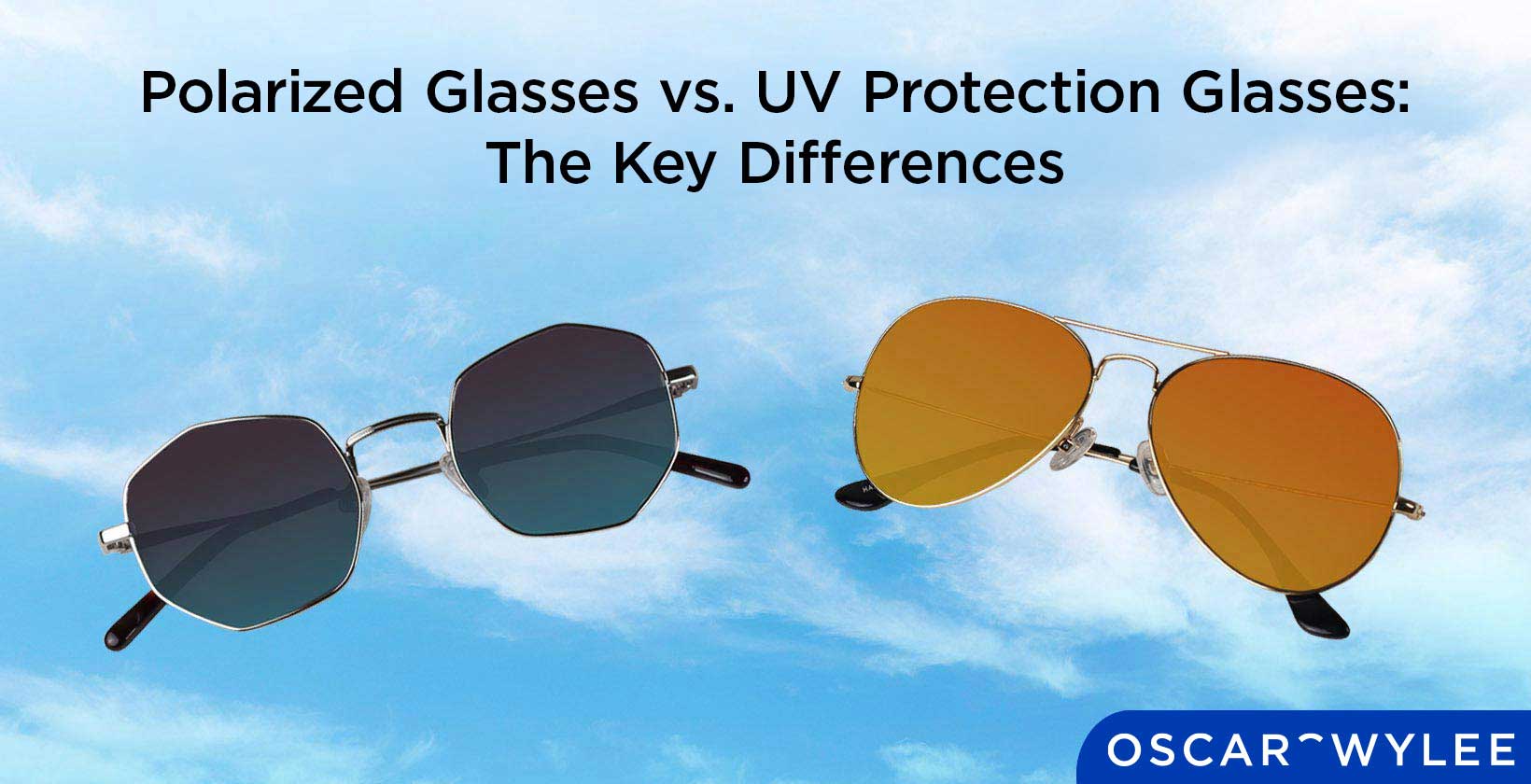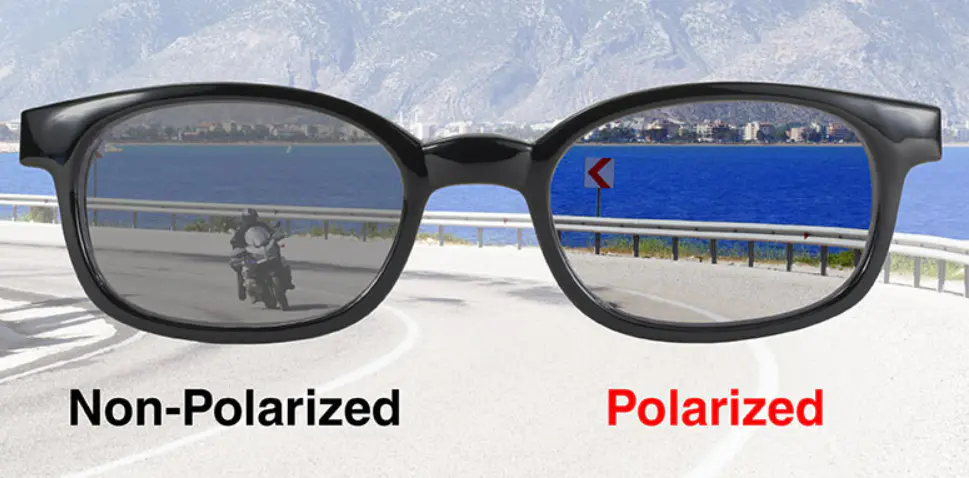Have you ever wondered what “polarized” really means when it comes to sunglasses? If you spend a lot of time outdoors, driving, or near water, understanding this can change the way you see the world—and protect your eyes.
Polarized sunglasses are more than just a stylish accessory; they are designed to cut down harsh glare that can strain your eyes and blur your vision. Imagine looking at a lake or a wet road without squinting or feeling discomfort.
Sounds great, right? Keep reading, and you’ll discover how polarized lenses work, why they might be the best choice for your eyes, and when you might want to skip them. Your next pair of sunglasses could make all the difference.
Polarized Lenses Basics
Polarized sunglasses have a special filter that blocks horizontal light waves. These waves cause glarewhen they bounce off flat surfaces like water, roads, or snow. The filter lets only vertical light wavespass through. This makes your vision clearer and more comfortable.
Glare can be very bright and annoying. It can make it hard to see and cause eye strain. Polarized lenses reduce this by cutting down the glare. This helps your eyes relax and reduces tiredness.
Because glare is blocked, colors and details look sharper. This is helpful for activities like driving, fishing, or skiing. You can see better and feel safer in bright conditions.

Credit: oscarwylee.ca
Benefits Of Polarized Sunglasses
Polarized sunglassesblock horizontal light rays that cause glare. This makes bright reflections from water, snow, and roads much less painful to the eyes.
They help you see things more clearly. Images look sharper and more detailed without the harsh glare.
Because they cut glare, your eyes don’t have to work as hard. This reduces eye strainand helps prevent tired eyes.
For drivers, less glare means better visibility of the road and other cars. This can make driving saferand help avoid accidents.
Outdoor activities like fishing, boating, and skiing become easier and more fun. You can see under the water or into the snow without bright reflections getting in the way.
Limitations Of Polarized Sunglasses
Polarized sunglassescan make LCD screenshard to see. Phones, car displays, or gas pumps may look dim or black. This happens because polarized lenses block some light from screens. It is not a problem but can be annoying.
In low lightor cloudy weather, polarized lenses may reduce how much light reaches your eyes. This can make things look darker and harder to see. Wearing them at dusk or dawn might not be the best choice.
Depth perceptioncan also be affected by polarized sunglasses. Some people find it harder to judge distances, especially when driving or doing sports. This is because glare and reflections help the brain understand space. Without them, depth cues are weaker.
Credit: www.kraywoods.com
Uv Protection And Polarization
UV blockingis essential in sunglasses. It protects eyes from harmful ultraviolet rays. UV rays can cause eye damage and increase cataract risk. Sunglasses that block 100% of UVA and UVB rays offer the best protection.
Polarizationand UV protection serve different purposes. UV blocking stops invisible harmful rays from reaching your eyes. Polarized lenses reduce glare from reflected light on surfaces like water or roads.
| Feature | What It Does |
|---|---|
| UV Protection | Blocks harmful ultraviolet rays to prevent eye damage. |
| Polarization | Filters horizontal light to reduce glare and improve vision clarity. |
Both features together give better eye comfort and safety outdoors. Sunglasses with only UV protection do not reduce glare. Polarized sunglasses may or may not block UV rays. Always check labels to ensure both features if you want full protection.
Cost And Value Considerations
Polarized sunglasses usually cost more than regular ones. This is due to the special polarizing filterthat reduces glare. Prices can range from affordable to high-end brands.
Price differences depend on brand, lens quality, and frame materials. Cheaper polarized sunglasses work well but may not last long. Expensive ones offer better durability and clarity.
Are they worth it? For people who spend time outdoors, polarized lenses reduce eye strainand improve vision. This makes activities like driving, fishing, or hiking safer and more comfortable.
For casual use, non-polarized sunglasses might be enough. But for bright, reflective environments, polarized sunglasses provide better valuedespite the higher price.
Choosing The Right Sunglasses
Choosing sunglasses depends on your daily activities. For sports like fishing or boating, polarized lensesreduce glare from water. This helps you see clearly and protects your eyes from bright reflections. For driving, polarized sunglasses improve road visibilityby cutting glare from wet roads or other vehicles.
Personal comfort matters too. Some people prefer lenses that block more light, while others want clearer vision without darkening. Try different sunglasses to find the best fit for your eyes. Remember, polarized lenses may make digital screens harder to see, so consider your needs before choosing.

Credit: oscarwylee.ca
Frequently Asked Questions
Are Polarized Sunglasses Better?
Polarized sunglasses reduce glare by filtering horizontal light rays, enhancing clarity and comfort. They protect eyes and improve safety in bright, reflective environments. However, avoid them for viewing LCD screens or in low-light conditions. Overall, they offer better visual comfort and protection outdoors.
Which Sunglasses Are Best, Uv Or Polarized?
Polarized sunglasses reduce glare and improve clarity, ideal for outdoor activities. UV sunglasses protect eyes from harmful rays. Choose polarized for glare; UV for sun protection.
Which Sunglasses Are Better, Polarized Or Nonpolarized?
Polarized sunglasses reduce glare, improve clarity, and protect your eyes better than nonpolarized ones. They suit outdoor activities but may darken LCD screens and low-light settings. Choose polarized for safer, clearer vision in bright environments; nonpolarized work well indoors or at night.
Who Should Not Wear Polarized Sunglasses?
People who use LCD screens frequently, drive at night, or have depth perception issues should avoid polarized sunglasses. They may reduce screen visibility and impair vision in low light.
Conclusion
Polarized sunglasses reduce glare by filtering horizontal light rays. They help your eyes see clearer and feel less tired. This makes outdoor activities safer and more comfortable. Yet, avoid wearing them in low light or when using LCD screens. Polarized lenses add value but may cost more.
Choosing the right pair depends on your needs and environment. Understanding polarization helps you pick sunglasses that protect and improve your vision. Keep this in mind for better eye comfort and safety under bright conditions.

Marry Christin, a passionate fashion designer and style enthusiast. Fashion isn’t just my profession—it’s my addiction! Along with my expert team, I bring you honest reviews of the latest fashion trends, including shoes, boots, sandals, dresses, and more.

